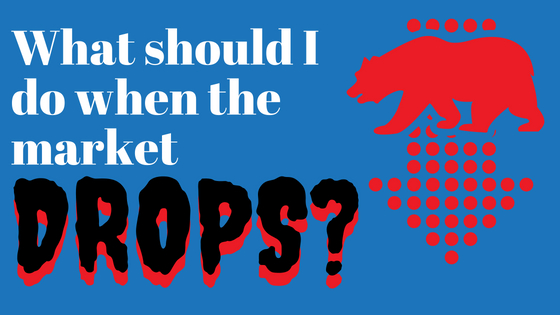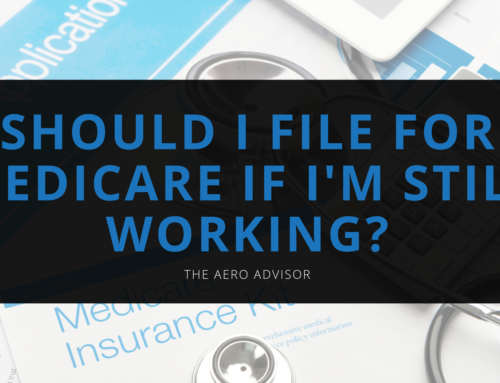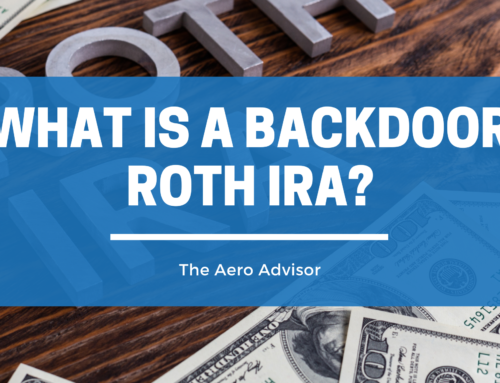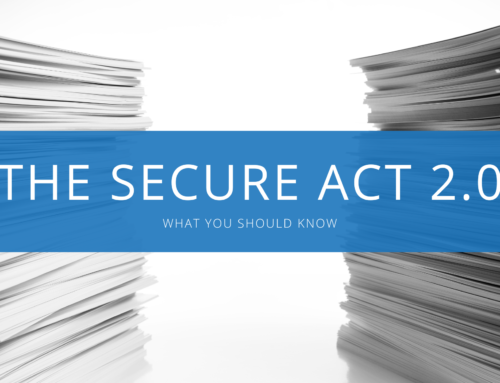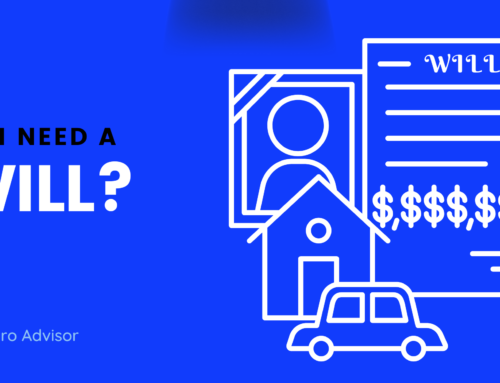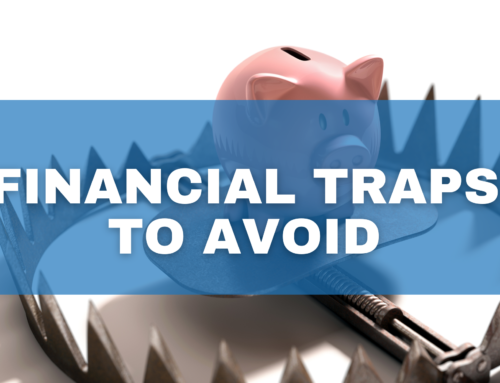Market corrections (a 10% or more drop in the market) can be scary. The media doesn’t help that either. Just take your local news for example – When the market is positive or has a “normal” pullback, you might get a graphic flashed before a commercial. When there’s a decent drop during the day, it’s one of the top stories. They might even throw up a b-roll camera shot of the Wall Street trading floor with a panicked investor.

Don’t let a market drop scare you.
Why does this happen? Because bad news attracts eyeballs. And more eyeballs=more money for those stations. There are reasons people don’t gather to watch a train go by, but will stare for hours at a “train wreck.”
But what does this mean for investors? What should you do when the market drops? Well – really not much. The market is going to drop from time to time, and you should count on it and develop a plan for how you’ll react when it does. Even if you do nothing – the market will recover from even the larger pullbacks if you are patient enough.
According to this study of market drops since 1945, there have been 77 drops of 5%-10%. On average, it took about one month for the market to recover from those drops.
In the same period, there have been 27 market drops of 10% – 20%, which have taken an average of four months to recover. Even larger drops of 20%-40%, took only 14 months to recover.
What type of plan should I put in place?
You need to determine what kind of drop you’ll be able to stomach. This may depend on your risk tolerance or how long you might have until retirement. Maybe you’ll put together a plan that will reallocate a portion of your retirement funds to less risky investments.
If you can’t stand the ups and downs of the market, then maybe you should re-evaluate if you need stocks in your portfolio at all. Maybe you’ve got enough in your retirement nest egg to retire and live comfortably for the rest of your time on earth. Well done! But also don’t forget to factor in inflation – the rising price of goods and services over time – into your retirement calculations. If you’ve been around a while, maybe you have bought a car recently for just about the amount you paid for your first house!
Should I go to cash when the market gets scary?
This is a pretty common tactic that can hurt a lot of Lockheed 401k participants (see other tactics that can hurt HERE). Unless you have a huge cash need in the very near future, there probably isn’t a good reason to go to cash when the market is bouncing around.
It’s easy to click buttons and move to cash after a drop. The tricky part is the timing of getting back in (if you decide you want to). If you wait too long, you’ve essentially sold good investments low and bought them when they are at a higher price. That’s not a great investment strategy.
So basically, market drops happen pretty frequently. They can be painful when you are watching your 401k balance dropping on your computer screen but as long as you’re sticking to your plan, you’ll most likely be fine.
(Sales pitch incoming) – If you don’t have a plan or don’t know how much market madness you can stand – let me know. Fill out the form below and I’ll help you develop a strategy that you’re comfortable with.
The opinions voiced in this material are for general information only and are not intended to provide specific advice or recommendations for any individual, nor intended as tax advice. We suggest that you discuss your specific situation with a qualified tax or legal advisor.

